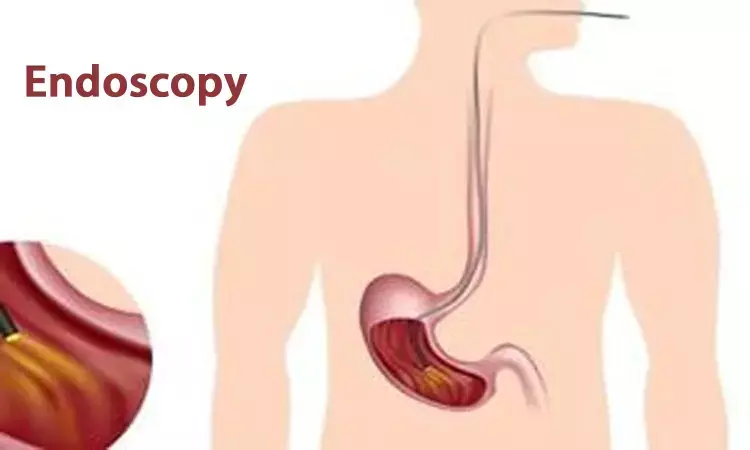- Home
- Medical news & Guidelines
- Anesthesiology
- Cardiology and CTVS
- Critical Care
- Dentistry
- Dermatology
- Diabetes and Endocrinology
- ENT
- Gastroenterology
- Medicine
- Nephrology
- Neurology
- Obstretics-Gynaecology
- Oncology
- Ophthalmology
- Orthopaedics
- Pediatrics-Neonatology
- Psychiatry
- Pulmonology
- Radiology
- Surgery
- Urology
- Laboratory Medicine
- Diet
- Nursing
- Paramedical
- Physiotherapy
- Health news
- Fact Check
- Bone Health Fact Check
- Brain Health Fact Check
- Cancer Related Fact Check
- Child Care Fact Check
- Dental and oral health fact check
- Diabetes and metabolic health fact check
- Diet and Nutrition Fact Check
- Eye and ENT Care Fact Check
- Fitness fact check
- Gut health fact check
- Heart health fact check
- Kidney health fact check
- Medical education fact check
- Men's health fact check
- Respiratory fact check
- Skin and hair care fact check
- Vaccine and Immunization fact check
- Women's health fact check
- AYUSH
- State News
- Andaman and Nicobar Islands
- Andhra Pradesh
- Arunachal Pradesh
- Assam
- Bihar
- Chandigarh
- Chattisgarh
- Dadra and Nagar Haveli
- Daman and Diu
- Delhi
- Goa
- Gujarat
- Haryana
- Himachal Pradesh
- Jammu & Kashmir
- Jharkhand
- Karnataka
- Kerala
- Ladakh
- Lakshadweep
- Madhya Pradesh
- Maharashtra
- Manipur
- Meghalaya
- Mizoram
- Nagaland
- Odisha
- Puducherry
- Punjab
- Rajasthan
- Sikkim
- Tamil Nadu
- Telangana
- Tripura
- Uttar Pradesh
- Uttrakhand
- West Bengal
- Medical Education
- Industry
Upper GI endoscopy for dyspepsia may detect organic lesions in sizable number of patients

SHIMLA: With upper GI endoscopy, the examination of alarm characteristics in dyspepsia patients younger than 60 years of age reveals organic lesions (65.3%), including malignancy (15.6%) in a considerable proportion of patients, according to recent research published in Indian Journal of Gastroenterology.
Globally, primary care patients frequently have digestive diseases, particularly dyspepsia. According to more recent American College of Gastroenterology (ACG) and Canadian Association of Gastroenterology (CAG) guidelines, people with dyspepsia under the age of 60 should not undergo endoscopy to rule out upper gastrointestinal (GI) neoplasia.
"This recommendation's applicability to our population has not been tested," Vishal Bodh, Department of Gastroenterology and team wrote.
In order to rule out upper GI neoplasia in dyspepsia patients younger than 60 years of age, this study evaluated the relevance of upper GI endoscopy.
To identify organic lesions and malignancies, 294 dyspepsia patients between the ages of 18 and 60 who had at least one or more alarm symptoms (unintentional weight loss, loss of appetite, GI bleeding, anemia, recurrent or persistent vomiting, dysphagia with predominant epigastric pain, and family history of upper GI cancer) were evaluated in this prospective observational study.
Conclusive points of the research:
- Functional dyspepsia (FD) was present in 34.7% (n=102) of the patients, while abnormal endoscopic results were present in 65.3% (n=192) of the patients (organic dyspepsia [OD]).
- 46 individuals (15.6% of the total study population) had upper GI tract malignancy (malignant OD) out of the 192 patients with OD, while 146 patients (49.6% of the total study population) had benign abnormalities (benign OD).
An organic lesion (65.3%), including malignancy (15.6%), is found in a considerable portion of dyspepsia patients who have their alarm features investigated with upper GI endoscopy, concluded the authors.
REFERENCE
Kumari, P., Machhan, P., Sharma, B. et al. Dyspepsia with alarm symptoms in patients aged less than 60 years: Is upper gastrointestinal endoscopy justified in Indian scenario?. Indian J Gastroenterol (2022). https://doi.org/10.1007/s12664-022-01275-y
Dr Kamal Kant Kohli-MBBS, DTCD- a chest specialist with more than 30 years of practice and a flair for writing clinical articles, Dr Kamal Kant Kohli joined Medical Dialogues as a Chief Editor of Medical News. Besides writing articles, as an editor, he proofreads and verifies all the medical content published on Medical Dialogues including those coming from journals, studies,medical conferences,guidelines etc. Email: drkohli@medicaldialogues.in. Contact no. 011-43720751


